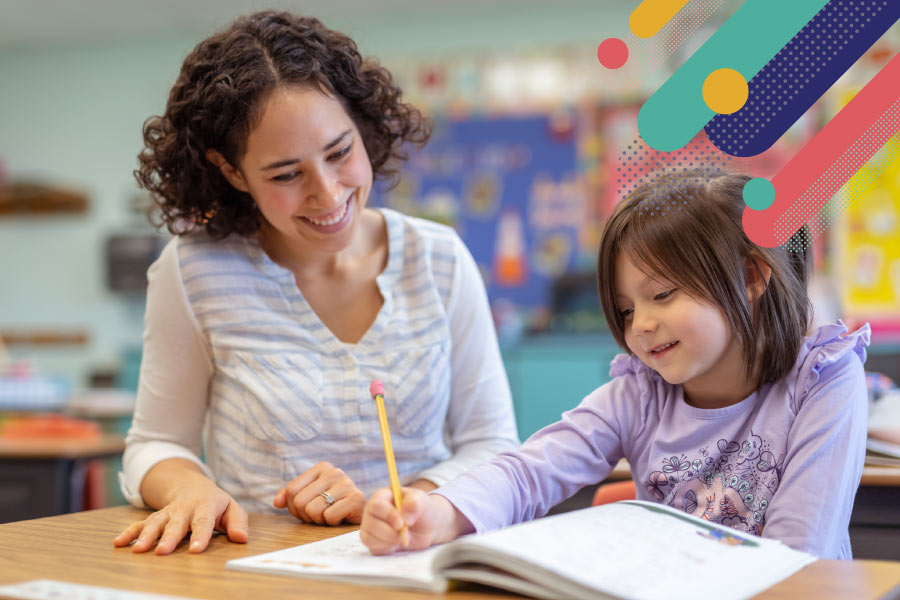Julie Mason shares why you should celebrate your failures in the classroom. She draws on her teaching experience and provides specific steps you can take to grow from failure, and teach your students self-compassion in the process.

If you try new things in your classroom, chances are that some of them will fail. The first time I taught Literature Circles was nothing short of a disaster. Despite what I considered was thoughtful planning, my students had difficulty initiating a discussion about their books. Instead of an interesting and spirited discussion of what they had read, what I actually observed was many off-topic conversations about upcoming weekend plans, one student dominating the process, and constant interruptions from groups asking for guidance. "If only there were six of me, this would be an awesome activity!" is what I remember thinking at the time as I watched the idea crash and burn in front of me.
It wasn’t my finest moment. Instead of acting like it was my students’ fault, I owned it. I stopped the groups, pulled the class together and we made a list of all the questions that they had. We discussed why this process wasn’t working, and what they needed from me and each other to try again.
Instead of focusing on how I didn’t get it right the first time, I modeled "failing forward" for my students. I showed them that learning is a messy process, and it is OK to stop, reset, and try again.
One of the biggest fears that many teachers have is losing control over their classroom and appearing as if they don’t know what they are doing. After all, our students look to us to guide the learning process and to demonstrate expertise in our subjects (and practice). Veteran teachers know that teaching is an art and a science, and what works well with one class might fall flat with another.
In order to stay energized in this profession and grow in your teaching craft, I believe that you have to try new things. Rather than expect perfection the first time around, and beat yourself up when things don’t go well, what would happen if you started to celebrate your classroom failures?
In our schools, we celebrate success...but why not failure? Failures are learning opportunities, and it is only through failure that we learn and grow. If we name our failures, and we celebrate them, we are modeling for our students that we learn by making mistakes.
Here’s how you can start celebrating your failures in the classroom:
Make A List Of What You Learned
Reflection is important in celebrating failures. If you can learn from the failure, then you can take action, which is empowering. If you model this process for your students, you are empowering them to see that their failures are an opportunity to grow rather than a reason to give up. When my first attempt at Literature Circles flopped, I didn’t throw in the towel and vow to never do them again. Instead, I worked together with my students to make a list of wasn’t working and what we could do about it so we could try again.
Treat Yourself With Self-Compassion
We often don’t talk to ourselves the way that we talk to our students or our friends. When we fail we tend to become hyperbolic and reactive. We tend to "catastrophize," and say things to ourselves like, “That was terrible” and “I am never going to do that again.” What if we change the messages that we are telling ourselves? It is a practice to train yourself to stop the negative self-talk and shift it to a more positive conversation. Instead of “That was terrible,” try “That didn’t go as well as I hoped.” Instead of “ I am never going to do that again,” what if we asked ourselves “What can I try next time so that it goes better?” If we make this type of talk visible to our students, we are teaching them how to practice self-compassion.
Shift Your Focus
When we fail at something, we tend to focus on everything that we did wrong. This isn’t productive. We need to shift our focus to our intention. My intention with Literature Circles was to try something new in my classroom. I wanted to provide my students with more ownership over their learning, and give them an opportunity to practice essential communication skills like asking a clarifying question and building on someone’s idea. It is worth celebrating that I was motivated to try something new, and that I wasn’t afraid. I had a clear and specific learning goal for my students. I learned that I needed to teach them some essential skills before they were ready. Instead of focusing on what didn’t work, I decided to celebrate my efforts to try instead.
Do you celebrate your failures? How? Share with us on Instagram, Facebook, Twitter, and Pinterest.
Julie Mason brings expertise in blended and personalized learning, instructional coaching, and curriculum design. She was a middle and high school English teacher for eight years and most recently taught at Dana Hall, an all-girls school in Wellesley, MA. She was a blended and personalized learning instructional coach for K-12 teachers at BetterLesson for two years, and she has presented at The National Principals Conference, ISTE, and ASCD where she shared her expertise on how instructional coaching builds teacher capacity in K-12 schools.










